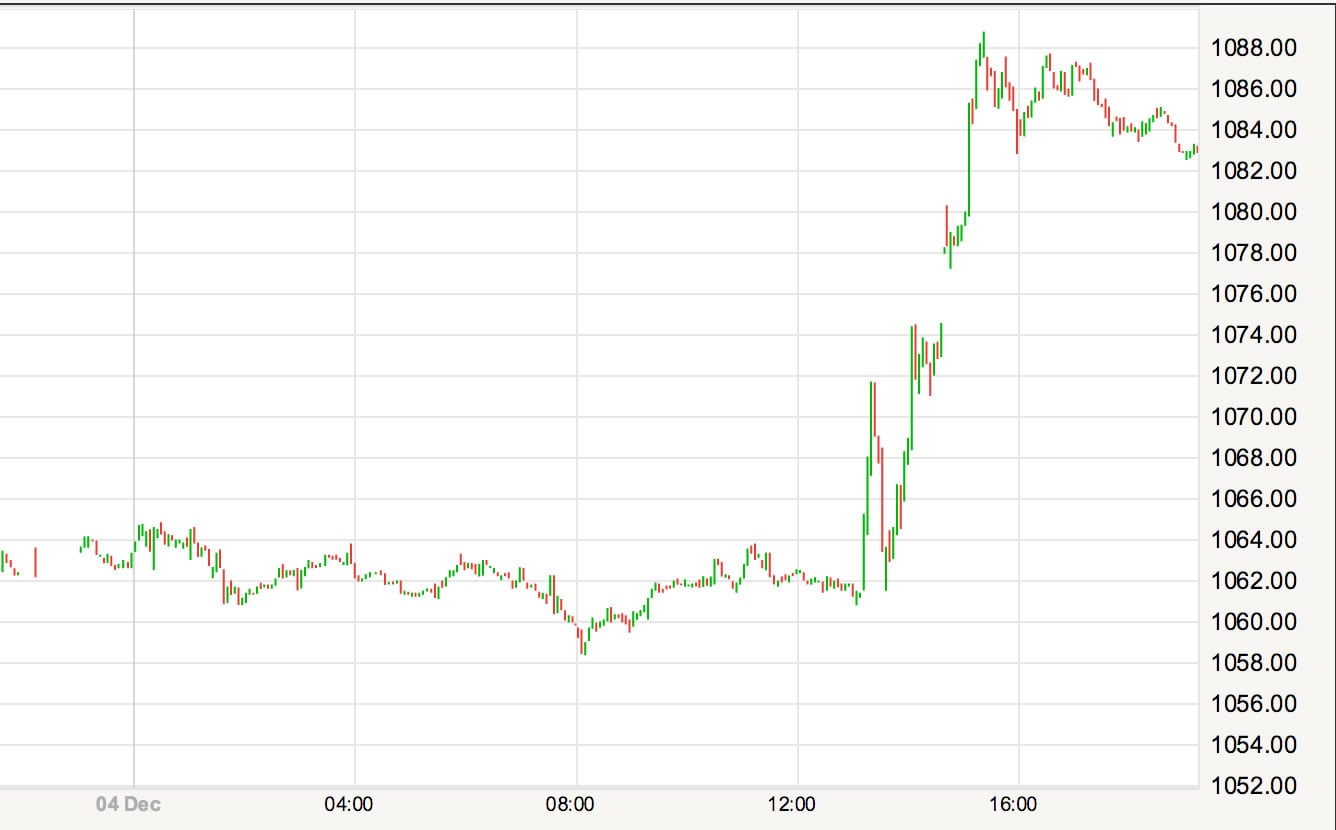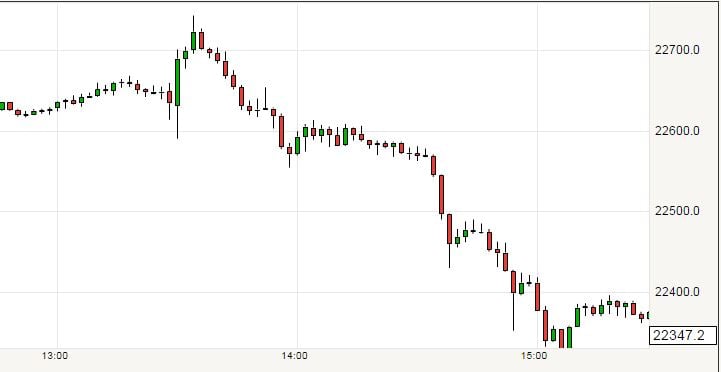Australian Dollar Savages British Pound as Gold Prices Surge
- Written by: Gary Howes
A sudden surge in gold prices gave the Aussie dollar an unexpected boost confirming the currency will start the new week on the front foot against sterling.

It seems both the NZD and AUD took a cue from gold at the close of the previous week as both commodity-reliant currencies found a new catalyst.
This is an interesting new dynamic in the story of NZD and AUD and something we could potentially focus on more closely over coming days and weeks.
Gold prices actually jumped sharply ahead of news that the US economy grew 211K jobs in November.
However, the lion's share of the rally commenced following the strong release which suggests the gold market had decided a strong releaes = good for future prices:
The Bureau of Labor Statistics reported today that US nonfarm payrolls rose another solid 211,000 in November, forecasts were for an increase of 200K.
“For months the odds of a US interest rate rise have been akin to those of Russian roulette," says David Lamb, head of dealing at FEXCO, "but when the Fed’s rate setting committee meets in December, it’ll be playing with a bullet in every chamber."
“With October’s barnstorming numbers revised upwards, and job creation in November comfortably over the magic 200k mark, such robust performance will mean the Fed is running out of reasons not to raise rates this month," says Lamb.
Interestingly, the commodity dollars are the big winners of the data while sterling and the US dollar appear to have lost ground dragging the GBP along with it.
The GBP/AUD was forced sharply lower ensuring any hopes for a floor to the losses seen since September look shaky at best. The exchange rate has fallen to 2.0518 on the open market, retail rates are now below 2.0, however some independent providers may be able to quote you above 2.0.
The GBP/NZD has fallen over a percent from the previous days close. It is seen at 2.23 while a rate around 2.1717 is being offered by your typical bank for international payments. Independent specialists are closer to the market at 2.2075 ensuring significant savings on GBP-NZD transfers.
As the above shows, traders initially followed intuition and sold the NZD in the wake of the data but suddenly suffered a change of heart in a matter of minutes. The trend lower in GBPNZD is a determined one.
If you compare the above patterns to that of the gold chart you will find they are closely correlated.
We have noted commodity prices have also rallied, but interestingly prices in copper and iron ore only found upside traction after the NZD and AUD had popped and is therefore not the cause.
While most investors believe rates will go higher this month, many have also grown convinced those increases will come at a measured pace in 2016.
"The November payroll report surprised modestly to the upside, cementing a December hike. Front to intermediate yields look reasonable in the context of a gradual hiking cycle with downside risks," say Barclays in a note to clients.
This could be the reason for higher gold prices but because gold popped ahead of the data release we suspect we are missing something.
We will update accordingly.
No Interest Rate Rise Likely in Australia
Even before gold prices stood in to support the Aussie and Kiwi we note the background mood in Australia is improving; something that should underpin the currency heding into the new year.
AUD strengthened to its highest level in one month after economic data surprised on the upside.
Economic growth, fuelled by strong net exports, rebounded 0.9% qoq, stronger than expected, in the third quarter.
This was slightly higher than the Reserve Bank of Australia’s (RBA) forecast.
"Hence, financial markets have scaled back expectations that the RBA will cut the Official Cash Rate (OCR) anytime soon. We maintain our view that the RBA is likely to lower the OCR by 25bp in early 2016 due to a weaker inflation outlook, widening divergence between the AUD and commodity export prices and below trend rate economic growth," says analyst Roy Teo at ABN Amro.






